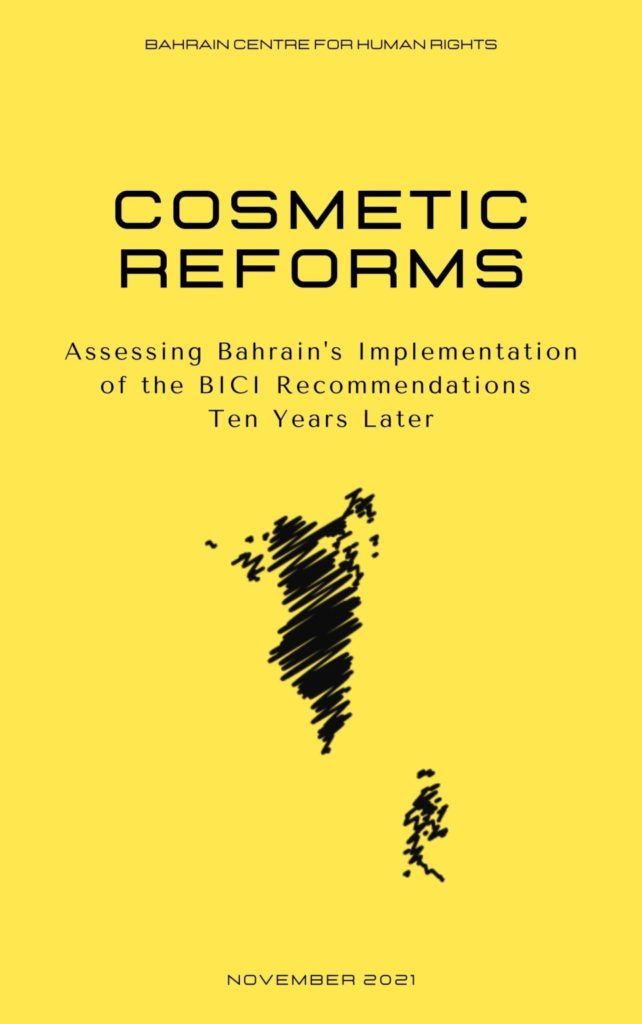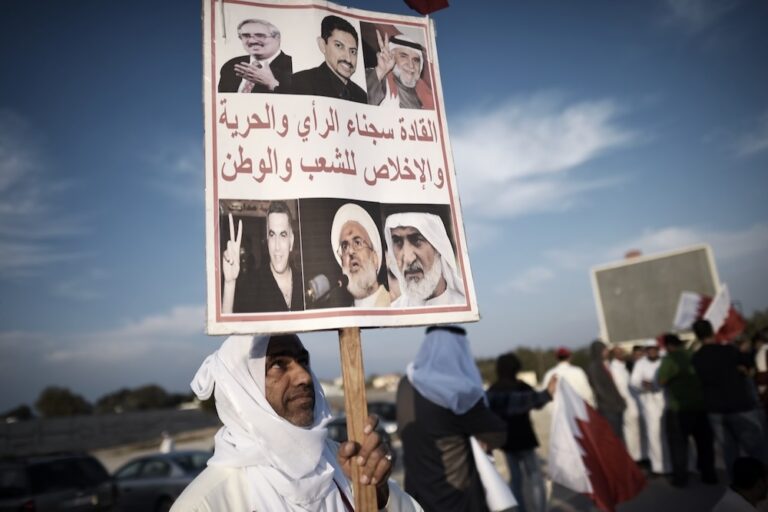Ten years on, Bahrain's pro-democracy movement leaders are still behind bars, major opposition political parties are outlawed, and the only independent newspaper in the country is indefinitely suspended, says a new report from Bahrain Center for Human Rights.
This statement was originally published on bahrainrights.net on 23 November 2021.
23 November 2021 marks the tenth anniversary of the King’s adoption of the recommendations of the Bahrain Independent Commission of Inquiry (BICI). The full and honest implementation of the BICI 26 recommendations was supposed to pave the way for a new era in Bahrain, where human rights are respected and accountability achieved. Nonetheless, since 2011, the human rights situation has been deteriorating.
Ten years on, the pro-democracy movement leaders are still behind bars, the major opposition political parties are outlawed, and the only independent newspaper in the country is indefinitely suspended. The Government of Bahrain’s (GoB) crackdown on free expression is in full force, as well as attempts to intimidate its critics into silence. The government officials responsible for killing dozens of protesters and torturing hundreds have not been held accountable, nor have those who directed the crackdown, as the government human rights bodies have proved ineffective. Most importantly, the grievances that sparked the 2011 uprising remain unaddressed. On the contrary, the GoB has escalated its repression, systematically and thoroughly closing civil and political space.
By assessing the implementation of the BICI recommendations, the Bahrain Center for Human Rights (BCHR) has found that the GoB has only fully implemented one recommendation, and it either has partially implemented or has not implemented the remaining 25. Our assessment depends on BCHR documentation and data collection from the ground, as well as those of our partners, besides extensive literature review. The report examines the measures taken by the GoB toward carrying out the reforms stipulated by the BICI and its statements on the progress made in this regard against actual implementation on the ground. Regarding some recommendations, the institutional and legal measures were insufficient to meet the requirements of their full and sincere implementation, whereas regarding others, these measures were adequate but not followed up with an impartial execution. In both cases, the government has not done enough to achieve the objectives of most of the recommendations, nor the overall purpose of them as a roadmap for genuine reform in the human rights scene in Bahrain. The GoB interpretation of the reforms proposed by the BICI was narrow, and its measures were shallow and cosmetic.
Fully implementing only one recommendation out of the 26 in a decade raises questions about the purpose of the BICI establishment. While creating the BICI was a bold step by the GoB, the subsequent shallow reforms and lack of seriousness in carrying out substantial changes indicate the absence of political will on the part of the government to truly address the human rights situation. The GoB has so far demonstrated unwillingness to rectify the current situation and initiate a comprehensive national dialogue that turns the page on a decade of turmoil in the country. The government’s recent targeting of three BCHR members by Pegasus spyware is indicative of this lack of will and the GoB’s unchanged behavior towards dissidents and critics.
Read the full report: Cosmetic Reforms: Assessing Bahrain’s Implementation of the BICI Recommendations Ten Years Later




